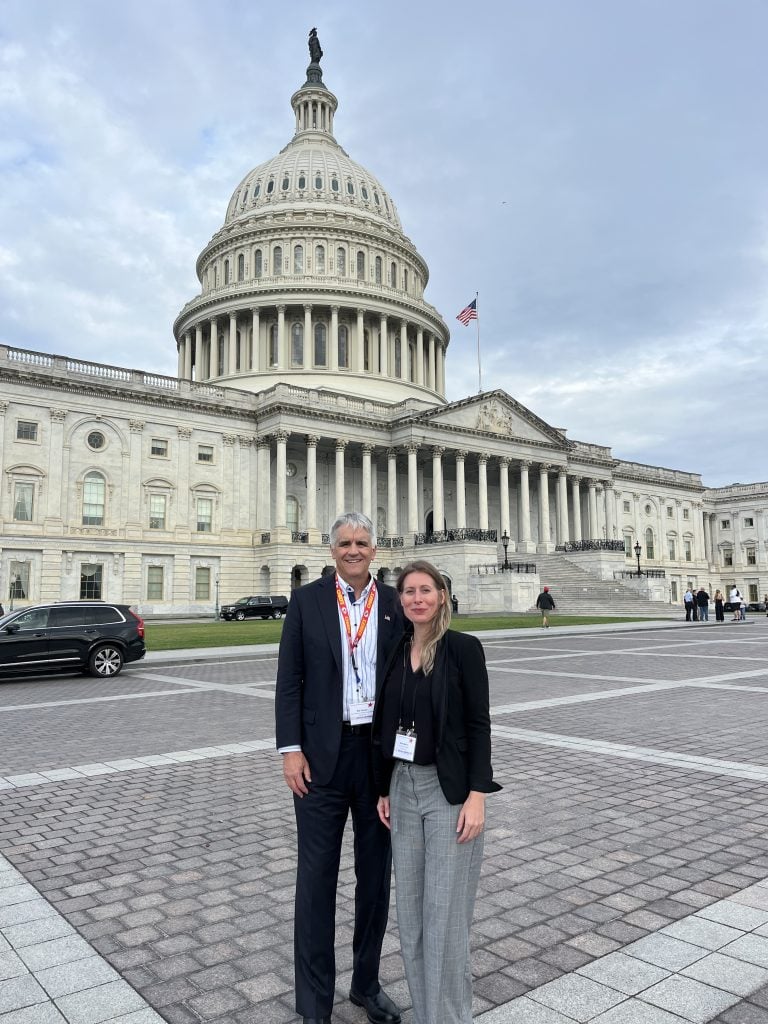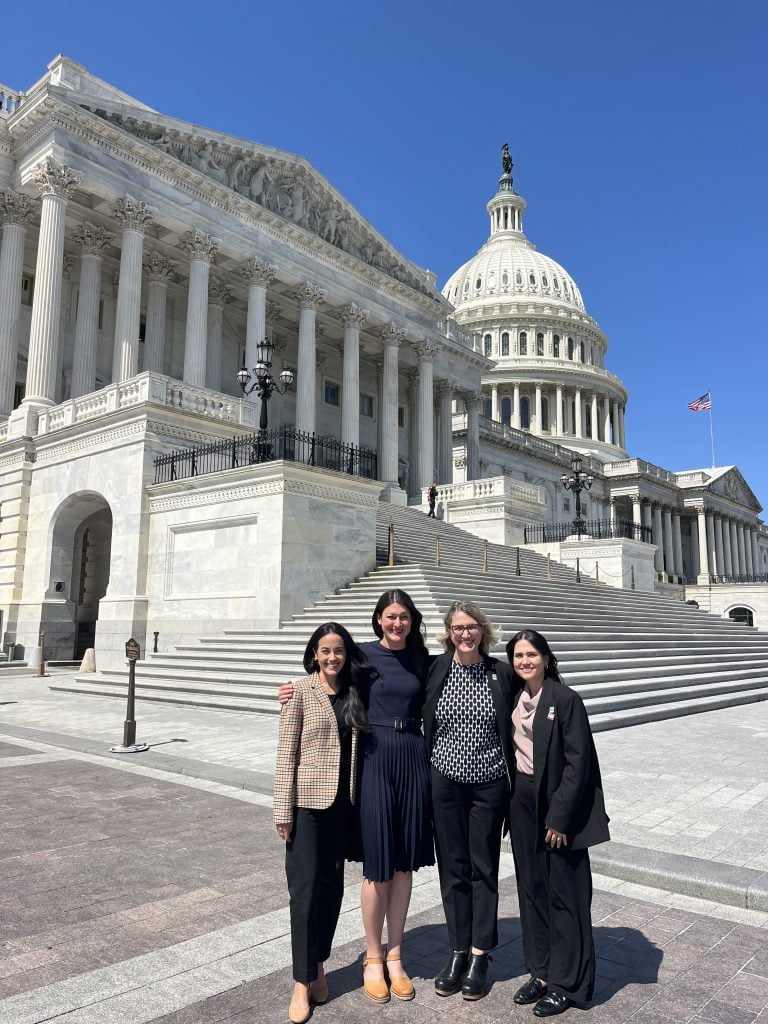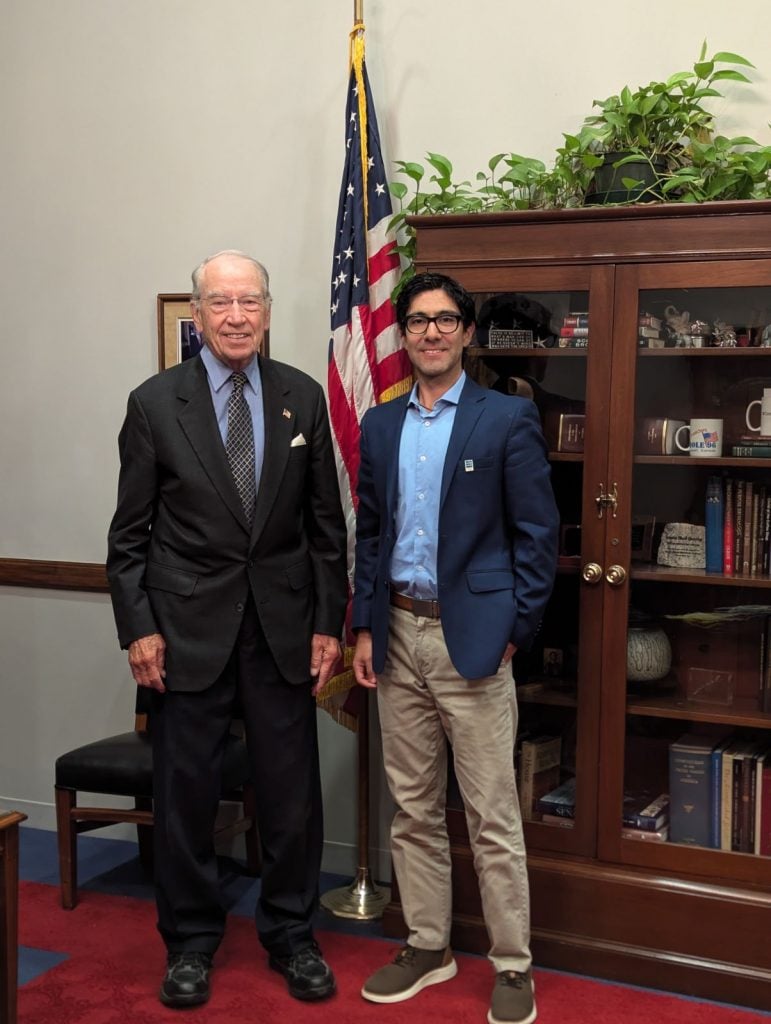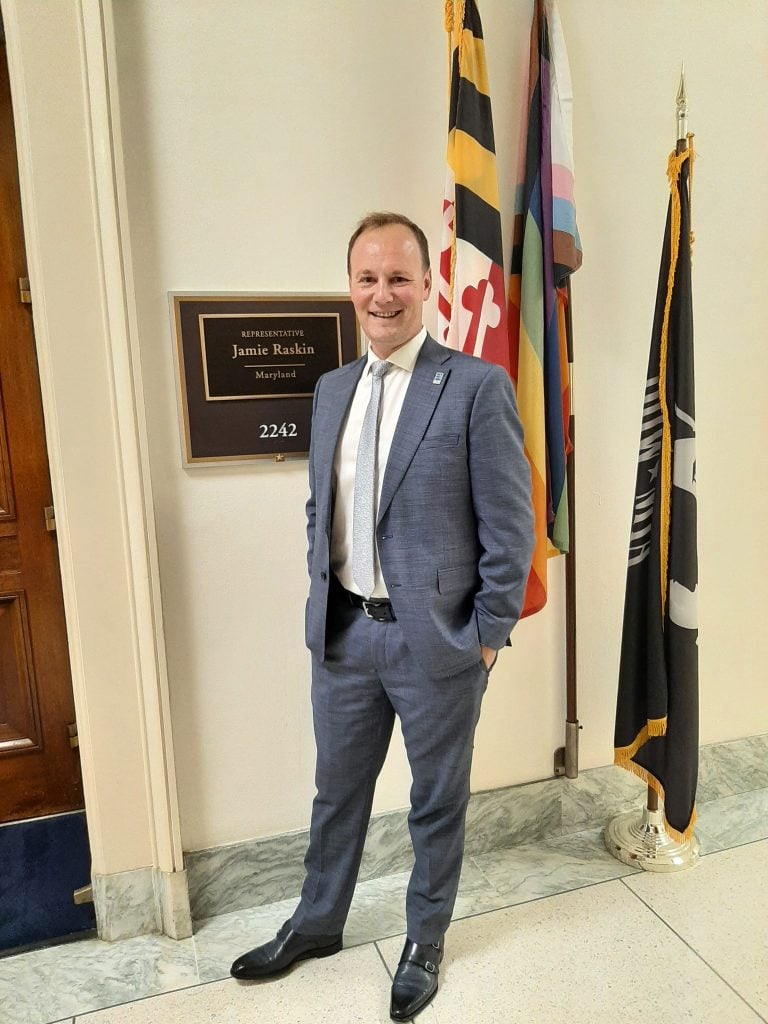Endocrine Society Endorses Right to IVF Act
In June 2024, the Endocrine Society endorsed the Right to IVF Act, introduced by Senators Cory Booker (D-NJ), Patty Murray (D-WA), and Tammy Duckworth (D-IL) to protect and expand nationwide access to fertility treatment, including in vitro fertilization (IVF).
The Right to IVF Act would help individuals and families impacted by infertility by establishing a statutory right to access IVF for all Americans who need it to start or grow a family and expanding access to coverage for IVF and fertility treatments. On September 17, 2024, Senate Majority Leader Chuck Schumer (D-NY) tried to proceed with a Senate vote on the bill, but Senate Republicans voted to block the bill. The 51-44 vote fell short of the 60-vote threshold needed to pass.
The Society has been a leading voice in advocating for access to IVF and fertility treatment. In some states, access to IVF is limited, and many states have banned or restricted access to reproductive medical services, in some cases including IVF.
The Society has been a leading voice in advocating for access to IVF and fertility treatment. In some states, access to IVF is limited, and many states have banned or restricted access to reproductive medical services, in some cases including IVF. In June, members of the Endocrine Society attended the American Medical Association’s (AMA) annual meeting in Chicago to advocate for IVF treatment. We co-authored a resolution with the American Society of Reproductive Medicine (ASRM) to oppose legislation, ballot measures, or court rulings that would restrict access to IVF treatment.
Endocrinologists are essential to IVF care, and we support access for all families across the country seeking safe and effective IVF treatment. The Society will continue to urge Congressional leaders on both sides of the aisle to address access to IVF and other assisted reproductive technologies and will continue to advocate for our members who treat and research infertility and other hormone health conditions. For more information, please see our statement on our website (endocrine.org/news-and-advocacy/news-room/2024).
Society Joins the 12th Annual Rally for Medical Research Hill Day, Advocates for NIH Funding
Over 200 scientists, patients, and researchers visited Capitol Hill on Thursday, September 19 to advocate for funding increases for the National Institutes of Health (NIH) as part of the Rally for Medical Research Hill Day.
Endocrine Society members Drs. Kristy Brown, Lorenzo Smith, Patricia Morris, Shannon Whirledge, Nico West, and Aime Franco urged Congress to provide at least $51.3 billion for the NIH and emphasized the need for leaders to work in a bipartisan manner to complete the funding process for Fiscal Year 2025 (FY 2025).

During our visits, we shared the importance of steady, sustained investments are essential to research progress. P Cuts to the NIH prevent groundbreaking discoveries that advance our understanding of and treatments for diabetes, obesity, endocrine-related cancers, osteoporosis, reproductive health, and other endocrine conditions.
Congress passed a temporary spending bill to keep the government funded until December 20 before it recessed to campaign ahead of the November elections. While this move averted a government shutdown, funding for all federal programs, including the NIH, remains in jeopardy until Congress completes funding bills for the FY 2025. The Endocrine Society will continue to urge Congress to complete the appropriations process for FY 2025 when it returns to Washington in November.
Check www.endocrine.org/advocacy for the latest updates for NIH funding.
Endocrine Society Advocates on Capitol Hill for SDP, Extension of Medicare Telehealth Waivers, and Increased Physician Payment
On Monday, September 9, Endocrine Society clinicians from across the country traveled to Capitol Hill to advocate for some of our top policy priorities: Reauthorization of the Special Diabetes Program; extension of Medicare telehealth waivers; and increased Medicare physician payment.

In all of our meetings, we urged Congress to extend the Special Diabetes Program (SDP) and Medicare Telehealth Flexibilities before they expire on December 31, 2024.
We also spent time discussing Medicare physician payment issues. We encouraged Congress to take action to avert the scheduled 2.8% cut to the Medicare Conversion Factor in 2025 and to provide an annual inflationary update in the Medicare Physician Fee Schedule. We also highlighted the Society’s support of a provision of the Pay PCPs Act that would create a Technical Advisory Committee to improve the accuracy of values of reimbursement codes commonly used by endocrinologists.
As a result of our close relationships with leadership in the House and Senate, we also had meetings with the Senate Finance Committee to discuss the need for Medicare to cover anti-obesity medications and with the Senate Majority Leader and House Minority Leader to discuss a path forward for legislation that would expand the $35/month cap on insulin for Medicare beneficiaries to people with private insurance and the uninsured.
Endocrine Society Co-Leads NIEHS Hill Day

As one of the lead organizations for the Friends of the National Institute of Environmental Health Sciences (NIEHS), the Endocrine Society works with a broad coalition of organizations to educate Congress about the important role NIEHS plays within the broader biomedical research enterprise and how endocrine science advances the NIEHS mission.
On September 26, we joined scientific leaders from the NIEHS Environmental Health Science Core Centers to visit congressional representatives and share the latest discoveries and scientific advancements made possible through NIEHS-funded research, including in the field of endocrine-disrupting chemicals (EDCs). While requesting increased funding for NIEHS as part of an overall increase in funding for the NIH, we described the unique strengths of the NIEHS core program and their focus areas including advancing scientific research, promoting community engagement, advancing translational research, and training new researchers.
With our comprehensive approach to advocacy for biomedical research, we will continue to ask for steady and sustainable increases to NIH funding across all NIH Institutes and Centers to advance endocrine research throughout the NIH.


